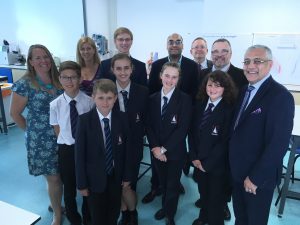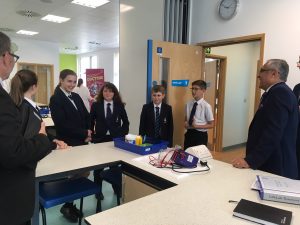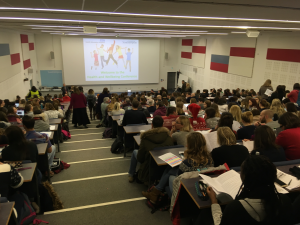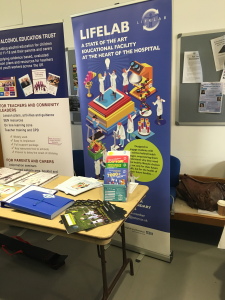“Children do not learn in the classroom alone, they have to come and experience things for themselves, and LifeLab gives them the opportunity to do that.”
Those were the words of Lord Patel when he visited our state of the art education space at University Hospital Southampton ahead of being presented with his honorary degree from the University of Southampton.

He was invited to have a look around our labs where we have welcomed more than 8,000 students so far this year to discover how their lifestyle choices can impact their health now and in the future.
With a wealth of experience social care and public health, Lord Patel said he was very impressed with the programme that sees teenagers carry out a series of hands-of experiences which examines their own health as part of a science-based module that their teachers have been supported in delivering in school.
Describing his thoughts on the project, which sits under the National Institute for Health Research and part of the University of Southampton, Lord Patel said: “It is extremely interesting and one that I see no reason why it can’t be rolled out further. It is so important that young people get the chance to have this practical experience so they can understand why taking care of their health is important.”
During his visit Lord Patel also spoke to visiting students from Hamble School who described the sort of activities they had been doing.
“Coming to a hospital and seeing what goes on and the people who work here is a great thing for them to be experiencing,” added Lord Patel.
LifeLab programme lead Dr Kathryn Woods-Townsend said: “This was a great opportunity to showcase LifeLab to someone who has a wealth of experience in the area of social and public health. It was wonderful to hear how enthusiastic he was about our approach.”

